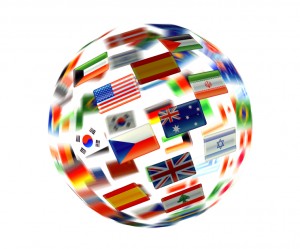 Syrian Army Deals Harsh Blows to Rebels in Aleppo
Syrian Army Deals Harsh Blows to Rebels in Aleppo
Forces from the Syrian Arab Army (SAA) are dealing with pockets of resistance from armed groups in Aleppo city, northern Syria, while diplomatic efforts to resolve the crisis appear to be renewed.
The offensive launched two days ago by the SAA against rebels in Syria’s second most important city and economic capital made great progress, dealing harsh blows to armed groups in some neighborhoods of the city and forcing their retreat, according to opposition spokespersons.
In areas of al-Asiyleh, Bab al-Nassr, al-Nairab and Salah Edwin (Saladino), many rebels, described by authorities as terrorists and mercenaries coming from nations of the Persian Gulf, were killed and their weapons seized, reported the SANA news agency.
Meanwhile, some sources are debating today the possible successor of UN Special Envoy to Syria Kofi Annan, noting that Algerian former Foreign Minister Lakhdar Brahimi, 78, could occupy the post, given his experience in Iraq and Afghanistan.
On Thursday, Iran issued a statement at a meeting in Tehran requesting an end to violence in Syria and favoring a national solution without a foreign intervention, a situation that could mean the renewal of a diplomatic process, apparently halted over the last weeks.
Tension Prevails in Parts of Tunisia after Violent Clashes
At least five people were wounded by police in the a part of Tunisia called Sidi Bouzi, where uprisings against Zine El Abidine Ben Alí broke out, great tension remains today after violent clashes.
Police arrested two people for “causing acts of violence” in the hometown of Mohamed Bouazizi, a young fruit peddler whose immolation on December 17, 2010, inflamed mass uprisings in Tunisia and the rest of the Arab world.
The demonstration, with about 800 people, was called by the December 17th Progressive Forces Front and the December 17th Committee for the Protection of the Revolution in Sidi Bouzid, to demand the release of detained activists and the removal of local government officials from their posts.
According to medical and security sources, two journalists were injured in the march, which police dispersed with tear gas, warning shots, and beatings of protesters in order to prevent them from taking the provincial government headquarters.
S. Korea’s Lee Visits Disputed Islets Despite Protests
South Korean President Lee Myung-bak paid a landmark visit Friday to a set of disputed islets claimed by both South Korea and Japan, an unprecedented trip that raised Tokyo’s ire.
The president visited the lonely East Sea outcroppings known as Dokdo here and Takeshima in Japan after a stop on the nearby Ulleung Island, some 90 kilometers west of the disputed islets, according to his office.
A self-professed pragmatist, Lee had largely avoided clashing headlong with Japan on outstanding historical issues even when the public sentiment at home dictated otherwise.
The trip, which made Lee the first South Korean leader to set foot on the islets coveted for rich mineral resources in its surrounding waters, came only four months before voters elect his successor.
It also came just a few days before South Korea celebrates the 67th anniversary of its independence from the Japanese colonial rule.
Japanese officials were up in arms, with Foreign Minister Koichiro Gemba warning the trip”would definitely have a large impact”on bilateral relations.
The Japanese authorities renewed their territorial claim over the islets in the latest defense white paper last month, which prompted Seoul officials to summon Japanese envoys in a show of protest.
South Korea has maintained its control of the islets for decades since the end of the 1910-1945 Japanese occupation. It is also building a naval base on Ulleung Island, a bid to better guard the Dokdo islands.
Lying equidistant between South Korea and Japan, the sparsely inhabited islets have been a chronic source of diplomatic row.
With the two Asian neighbors long at odds over historical issues, many South Koreans see the recurring territorial disputes as a sign of an unrepentant Japan.
Just last month, South Korea’s attempt to forge its first military pact with Japan was thwarted at the last minute by the outraged public weary of Japan’s resurgent military ambitions.
The outcry threatened to further isolate the unpopular president, whose foreign policy track record earned him a “pro- Japanese”label.
Friday’s landmark trip met with mixed reactions at home. “The visit is meaningful in that it demonstrates his will to protect the country’s sovereignty,”Lee’s conservative ruling Saenuri Party said in a statement earlier in the day.
The opposition sounded less enthusiastic, claiming the trip was a political gimmick for domestic audiences. “The visit should not be a one-time event,”the main opposition Democratic United Party said in a statement.”It is about time we sought practical measures to strengthen our control over Dokdo.”
